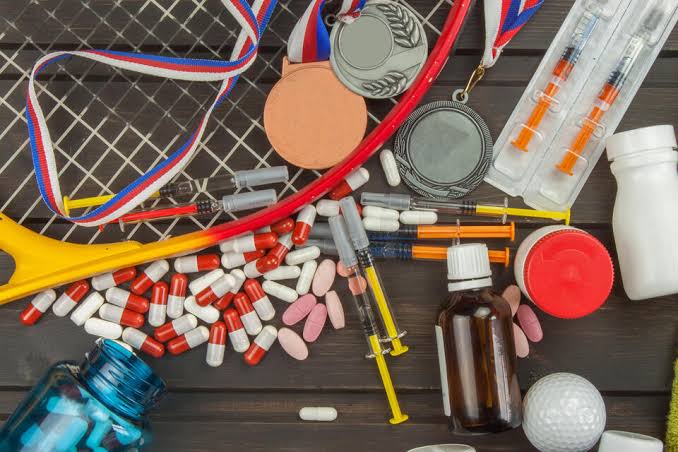Introduction
In competitive sports, maintaining fair play is essential. Anti-doping regulations exist to ensure that all athletes compete on a level playing field. However, some substances can lead to disqualification, bans, or even health risks if unknowingly consumed. Understanding which drugs are prohibited is crucial for athletes to avoid doping violations.
Commonly Banned Substances in Sports
- Anabolic Steroids
- Examples: Testosterone, Nandrolone, Stanozolol
- Why Banned? These substances boost muscle growth and strength but come with severe side effects like liver damage and hormonal imbalances.
- Stimulants
- Examples: Amphetamines, Ephedrine, Cocaine
- Why Banned? They increase alertness and reduce fatigue, but they also raise heart rate and blood pressure, posing significant health risks.
- Erythropoietin (EPO) and Blood Boosters
- Examples: EPO, Darbepoetin, Hematide
- Why Banned? These drugs increase red blood cell production. This improves oxygen delivery to muscles. However, they also heighten the risk of strokes and heart attacks.
- Growth Hormones and Peptides
- Examples: Human Growth Hormone (HGH), Insulin-like Growth Factor (IGF-1)
- Why Banned? They enhance muscle recovery and cell growth, but they can lead to abnormal organ growth and metabolic disorders.
- Diuretics and Masking Agents
- Examples: Furosemide, Hydrochlorothiazide, Probenecid
- Why Banned? These substances help athletes lose water weight quickly and are often used to mask the presence of other banned drugs.
- Beta-2 Agonists
- Examples: Clenbuterol, Salbutamol (above therapeutic doses)
- Why Banned? Used to treat asthma, some beta-2 agonists can also enhance muscle growth and aerobic capacity when misused.
- Narcotics and Painkillers
- Examples: Morphine, Oxycodone, Fentanyl
- Why Banned? They reduce pain sensitivity, allowing athletes to push beyond their natural limits, increasing the risk of injury.
How to Stay Clean and Compliant
- Check Medications: Always verify with anti-doping agencies (e.g., WADA) before taking any medication.
- Be Cautious with Supplements: Many supplements contain hidden banned substances; choose certified products.
- Stay Educated: Keep up with updated banned lists and anti-doping regulations.
- Consult Medical Professionals: Seek guidance from sports doctors to ensure prescribed medications comply with anti-doping rules.
Conclusion
Avoiding banned substances is essential for maintaining the integrity of sports and protecting an athlete’s career. By staying informed and cautious, competitors can focus on natural talent and dedication rather than performance-enhancing drugs.




